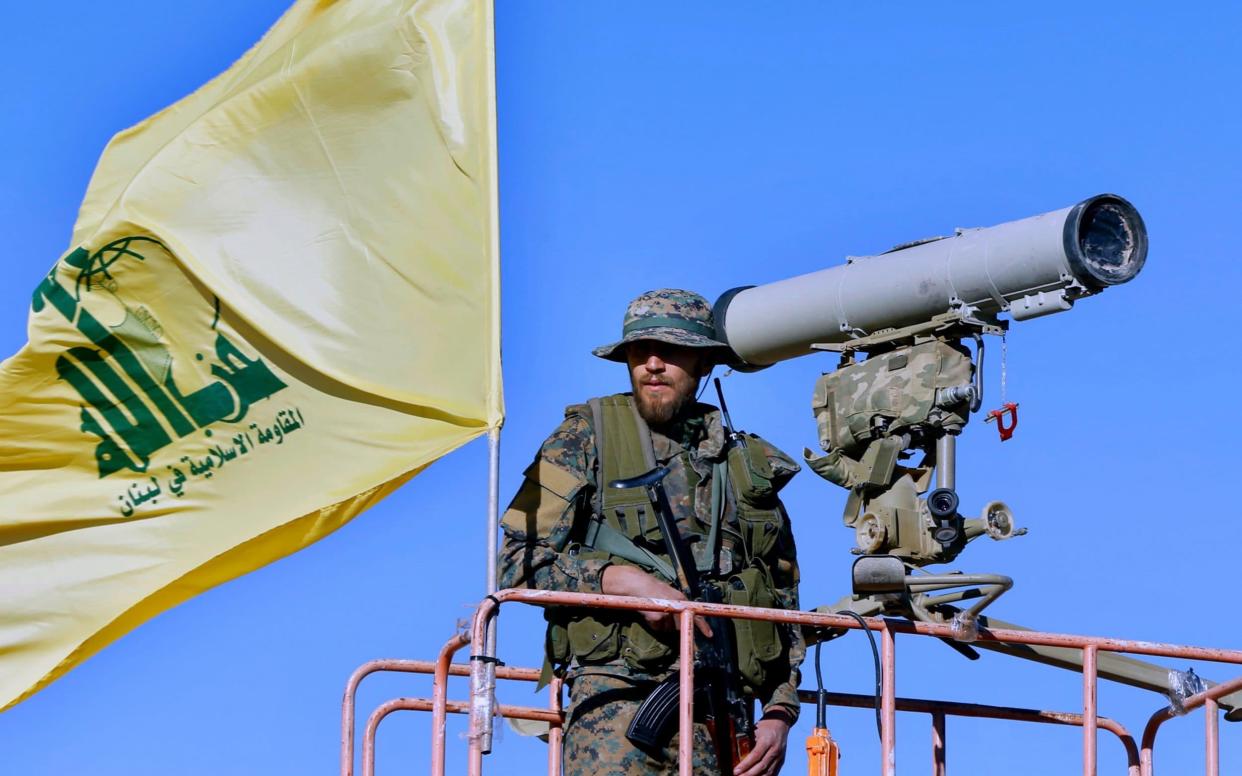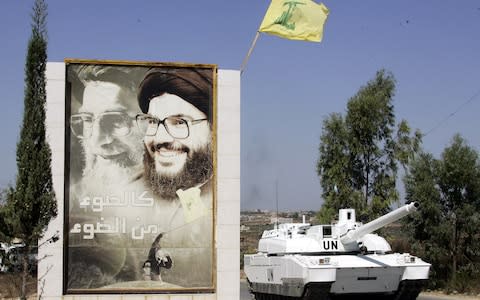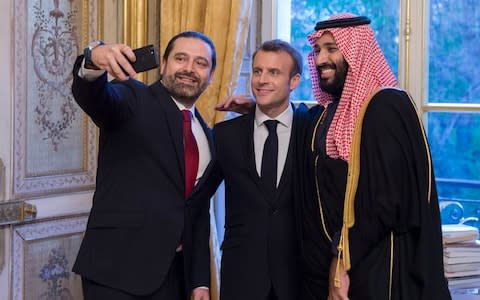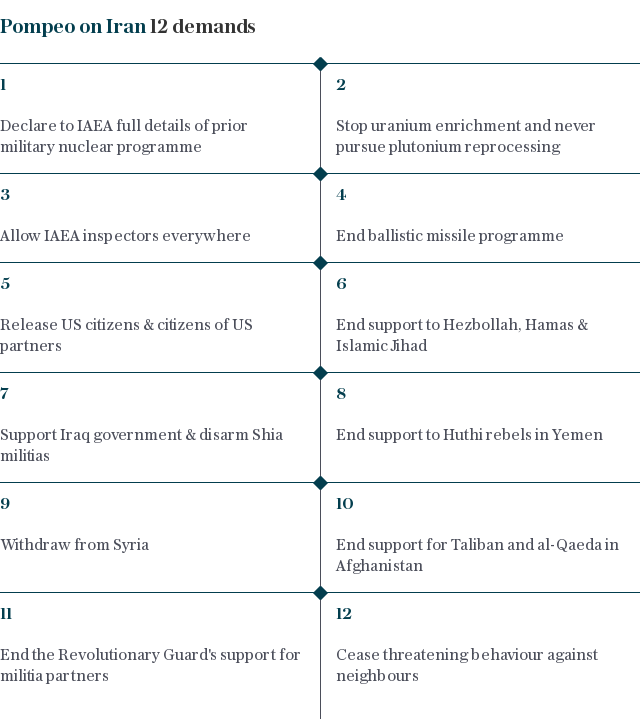Beirut will need to play its cards right forming a government amid tightening US sanctions on Hizbollah

The United States is trying to curb the increasing Iranian influence in the Middle East and is taking its fight to Lebanon through Tehran’s main proxy – Hizbollah.
As part of wider US strategy, the recent sanctions imposed on Iran and its non-state actors will give Lebanese officials a major headache in forming a new government.
The US has been imposing sanctions on the militant group for decades. However, a new wave last week appears to be more serious about targeting the group's top leadership as well as businessmen and companies that Washington says are funding the group that has sent troops to Syria to bolster Bashar al-Assad’s regime.
And they come weeks after US President Donald Trump pulled out of the Iran nuclear deal.
After holding parliamentary elections earlier this month in Lebanon, a new cabinet is set to be formed. On Thursday, Saad Hariri, the outgoing and incoming prime minister, was given the green light to form and lead the new government.

But Mr Hariri will have to tread a fine line in forming a new government by proving to the West and Gulf allies that Hizbollah does not control the country’s major decisions. Saudi Arabia has previously accused Lebanon of providing political cover to the group.
On the other hand, Hizbollah has to be represented in some capacity since it represents a significant sect and part of the country’s makeup. Lebanon is ruled by the 1989 Taif Accord that ended the 1975-90 civil war and called for equality between Muslims and Christians.
Now in a stronger position after this month’s election, Hizbollah and its allies are expected to form a greater part of the government.
This is Mr Hariri’s third time being called on to form a government, and he has been an outspoken critic of Iran and Hizbollah. But he noted that his hand is “extended to all political [parties] in our country for cooperation to achieve ... a state that’s sovereign, free and independent.”
While Hizbollah traditionally was granted minor ministerial portfolios, Hassan Nasrallah, the group’s leader, said that this was no longer acceptable. This caught the attention of world powers and perhaps influenced the timing of the sanctions.
On Monday, Mike Pompeo, the US secretary of state, told Iran that it should halt its support of Hizbollah. His exact words in front of the Senate Foreign Relations Committee were: "We will track down Iranian operatives and their Hizbollah proxies operating around the world and crush them.”
A diplomatic source in Beirut told The Telegraph that the timing of the sanctions was no mistake.

They said the US's decision to impose sanctions was taken before the election, but announced as Lebanon's politicians began their discussion on the government's make-up.
"Now it’s up to them to show that Hizbollah does not in fact control the policy decisions of the country,” the source said.
So which ministries are potentially available for arguably Iran’s strongest non-state militia?
The ministries of defense, interior, foreign affairs and finance are the four key portfolios highly sought after. They require communication and travel with foreign countries, which makes them just about out of the question for Hizbollah with the new sanctions.
The group had two ministries in the outgoing government – industry and youth and sports. Similar ministries are expected to be granted while there’s a slight possibility that a bigger ministry could be substituted in.
Mohanad Hage Ali of the Carnegie Middle East Centre in Beirut believes the sanctions would make it difficult for Hizbollah “to draw on independence and get any sensitive [government portfolios].”
Mr Hage Ali noted that Lebanon has been careful in the past not to miss any opportunities to “convince the Americans and Congress to make sure any sanctions are specific and target certain individuals.”

Because of the past trends by Lebanon, Hizbollah could be limited in its choices.
It’s widely expected for another 30-member cabinet to be formed meaning that 15 ministers will be Christian and 15 Muslim. Shia, Sunni and Druze will divide the 15 Muslim ministers among themselves. This will leave Hizbollah and Amal with most likely two and three ministers respectively.
The finance ministry looks to be retained by the Shia sect, but by Amal.
Nasrallah has spoken of his ambition for a ministry of planning, which doesn’t exist but could be formed and granted to his party. The other possible ministry would be the Public Works and Transport Ministry. This would arguably be the biggest ministry given to Hizbollah since their participation in any government.
But Thursday’s fresh sanctions by Washington on airlines for transporting weapons, fighters and money to Iranian proxies in Syria and Lebanon could make it difficult for foreign acceptance of Hizbollah controlling the ministry.
The ministry oversees the country’s flag carrier, Middle East Airlines, and Lebanon’s Central Bank controls 99 percent of MEA’s shares.
As Mr Trump jostles with Iran, Beirut will need to play its cards right if it hopes to continue receiving military aid and support for a stable Lebanon.

 Yahoo News
Yahoo News 
